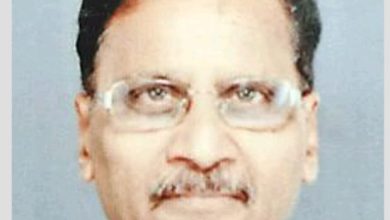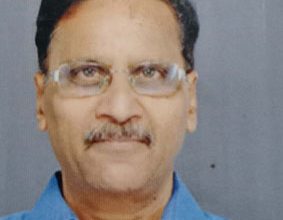Media Boycott: A Crucial Battle for India’s Democratic Soul

In the labyrinthine world of Indian politics, the decision by the Opposition-led I.N.D.I.A bloc to boycott certain news anchors and their television shows has ignited a fierce debate that resonates far beyond the newsrooms and party corridors. What initially seemed like a strategic move to challenge perceived media bias has now evolved into a larger battle that has raised fundamental questions about the essence of democracy, press freedom, and the evolving role of the media in shaping public discourse.
At the heart of this controversy is a list of 14 news anchors deemed persona non grata by the I.N.D.I.A bloc. These anchors, hailing from prominent news channels such as News18, Aaj Tak, India Today, India TV, Republic Bharat, Bharat 24, Times Now Navbharat, and DD News, suddenly found themselves in the crosshairs of a political storm. The I.N.D.I.A alliance, a coalition of opposition parties, vowed not to send their representatives to participate in shows hosted by these anchors, citing concerns of media bias in favor of the ruling BJP—a phenomenon that has occasionally earned these anchors the moniker “Modia” from certain opposition leaders. However, this decision has not unfolded without its share of vehement criticisms, impassioned defenses, and deep introspections about the role of journalism in a thriving democracy. As the controversy continues to simmer, it beckons us to delve deeper into the nuances and implications of this audacious move that threatens to reshape India’s media landscape. The Media’s Reaction The news anchors targeted by the boycott responded with a mixture of surprise, defiance, and concern. Sushant Sinha, known for his program ‘News ki Pathshala’ on Times Now Navbharat, expressed bewilderment at his inclusion on the list. He questioned the necessity of such a boycott, especially for anchors like him who rarely host debate shows or invite guests. For him, the boycott seemed more like an intimidation tactic rather than a legitimate means of holding the media accountable. Rubika Liyaquat of Bharat24 echoed similar sentiments, framing the decision as an act of intimidation. She emphasized her commitment to fearless journalism, refusing to shy away from asking tough questions and challenging the prevailing narratives. In a post on social media, Liyaquat asserted that the move was less about boycotting journalists and more about evading scrutiny and dissent—a concerning trend in any democratic society.
The Media’s Call for Press
Freedom The boycott decision quickly garnered condemnation from the News Broadcasters and Digital Association (NBDA). In a resounding statement, the NBDA voiced its unequivocal disapproval of the move, asserting that it runs counter to the democratic principles India holds dear. The NBDA underscored the importance of press freedom and expressed concern that this boycott threatened to imperil the very essence of democracy. The sentiments echoed by the NBDA reflect a growing unease within the media community about the future of journalism and the freedom to report without fear or favor. It brings into focus the delicate balance between media responsibility and journalistic independence—a balance that is critical for the health of any democracy.
Historical Parallels and Concerns
Some news anchors drew parallels between the current situation and the dark days of the Emergency in 1975. During that period, the Congress government censored the press and suppressed dissenting voices, leading to widespread curbs on freedom of expression. The comparison serves as a stark reminder of the significance of safeguarding press freedom and the media’s role as a guardian of democracy. The anchors have raised valid concerns about potential fake cases, threats to their safety in certain states, and the broader implications of the boycott. These concerns underscore the need for an environment where journalists can perform their vital role without fear of retribution or persecution. Critics argue that some leaders within the I.N.D.I.A bloc have made undesirable comments about Hinduism, sparking tensions and concerns about religious harmony. Day in and day out, leaders from the DMK and other political factions have been vocal in their criticism of Sanatan Dharma, the ancient spiritual and religious tradition that holds a central place in the lives of millions of Indians. Additionally, a minister in the Bihar government reportedly made statements against the revered epic, the Ramayana. Such remarks have the potential to incite sentiments among those who hold these epics in deep reverence.
Religious Tourism and Economic
Impact In this charged atmosphere, it becomes crucial to examine the economic implications of religious tourism. Tamil Nadu, in particular, relies heavily on religious tourism as a significant source of revenue. This sector has played a pivotal role in shaping the state’s economic landscape. Without the influx of pilgrims and tourists drawn by religious sites, Tamil Nadu’s economic situation might be markedly different, possibly even lagging behind other states like Bihar. The economic interdependence between religious tourism and the livelihoods of the people underscores the sensitivity of religious sentiments in India. Any interference or insensitive remarks have the potential to disrupt this delicate balance and have far-reaching consequences on the economic wellbeing of regions deeply intertwined with religious tourism.
Social Inequities and Discrimination
Amidst these religious and political debates, another grave concern surfaces – social inequities and discrimination based on caste, creed, and religion. Despite more than seven decades of implementing the Indian Constitution, discrimination continues to persist in various forms. The tale of Tamil Nadu, where the so-called ‘Harjans’ are served tea in disposable paper cups while upper-caste customers receive their beverages in exclusive glass tumblers, is a stark example of this reality. The ‘twotumbler system,’ which has endured for over six decades, stands as a symbol of this discrimination. Additionally, Harijans, often termed Dalits, are denied the simple act of sitting on chairs and benches inside tea shops in both villages and town squares. These practices persist despite the progress made in many other aspects of Indian society.
A Call for Reassessment
In the midst of this complex web of issues, it is imperative for the I.N.D.I.A alliance to reconsider its decision to boycott news anchors. Blacklists have no place in a democracy; they serve only to mark out targets, perpetuating a cycle of division and polarization. This controversy serves as a stark reminder of the fragility of democratic values and the importance of safeguarding them in the face of political turbulence. It is a call to action for all stakeholders – political leaders, media professionals, and the public – to collectively ensure that democracy thrives, press freedom endures, and the nation’s diverse voices continue to resonate in a harmonious and inclusive chorus.






